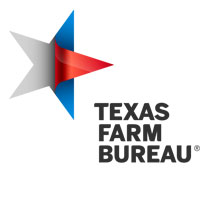There is no room for the UN on our dinner plate
By Russell Boening
Texas Farm Bureau President
You have likely heard the expression, “Stay in your lane.”
It means stick to what you know. Do what you are supposed to do. But do not stray too far.
The expression is especially fitting for the United Nations (UN) and its Food and Agriculture Organization (FAO).
The FAO consistently criticizes the U.S. agriculture sector for its impact on the environment without recognizing advances farmers and ranchers have made to reduce greenhouse gas emissions.
The latest salvo from the UN agency was on Dec. 8 when it published a “Pathways to Lower Emissions” report for livestock agrifood systems during this year’s COP28 climate summit.
One of the recommendations in the report is for the U.S. to dramatically reduce its meat consumption to help lower greenhouse gas emissions.
The UN swerved way out of its lane on this one. It must have done so to avoid hitting facts in the path of its political agenda.
As American farm efficiency goes up, emissions are going down in the livestock sector. Livestock emissions get a lot of attention in discussions around sustainability, but they make up less than 4% of overall emissions in the U.S. And those numbers are declining thanks to improvements in feed and production.
Sustainability and efficiency on the farm and ranch go hand-in-hand. Farmers and ranchers today are doing more with less thanks to innovation and technology. In fact, U.S. agriculture would have needed nearly 100 million more acres 30 years ago to match today’s production levels.
Ninety percent of what cattle eat is forage and plant leftovers that people can’t eat and would otherwise go to waste, yet cattle upcycle it into protein that humans can eat.
A reduction in meat consumption will not only impact American farmers and ranchers, it will also lead to limited choices at the grocery store and higher prices for food.
Many parts of the world still experience malnutrition. The reduction in meat consumption would greatly impact those who are malnourished and would not be able to afford higher-priced alternatives.
The UN’s goals are short-sighted and undermine American agriculture. The United States should not be a part of an organization that promotes such misguided agendas.
Russell Boening is a full-time farmer and rancher from Wilson County. He grows feed grains, cotton and wheat, as well as operates a dairy and a beef cattle operation with his brother near Floresville. He is president of Texas Farm Bureau.

